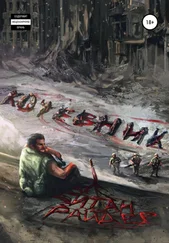Итан Рарик - Desperate Passage
Здесь есть возможность читать онлайн «Итан Рарик - Desperate Passage» весь текст электронной книги совершенно бесплатно (целиком полную версию без сокращений). В некоторых случаях можно слушать аудио, скачать через торрент в формате fb2 и присутствует краткое содержание. Жанр: Путешествия и география, на английском языке. Описание произведения, (предисловие) а так же отзывы посетителей доступны на портале библиотеки ЛибКат.
- Название:Desperate Passage
- Автор:
- Жанр:
- Год:неизвестен
- ISBN:нет данных
- Рейтинг книги:4 / 5. Голосов: 1
-
Избранное:Добавить в избранное
- Отзывы:
-
Ваша оценка:
- 80
- 1
- 2
- 3
- 4
- 5
Desperate Passage: краткое содержание, описание и аннотация
Предлагаем к чтению аннотацию, описание, краткое содержание или предисловие (зависит от того, что написал сам автор книги «Desperate Passage»). Если вы не нашли необходимую информацию о книге — напишите в комментариях, мы постараемся отыскать её.
Desperate Passage — читать онлайн бесплатно полную книгу (весь текст) целиком
Ниже представлен текст книги, разбитый по страницам. Система сохранения места последней прочитанной страницы, позволяет с удобством читать онлайн бесплатно книгу «Desperate Passage», без необходимости каждый раз заново искать на чём Вы остановились. Поставьте закладку, и сможете в любой момент перейти на страницу, на которой закончили чтение.
Интервал:
Закладка:
So, as they had before, the men of the Donner Party ignored the increasing evidence that Hastings was a charlatan and vowed to forge ahead along his untried bearing.
UNTIL NOW THE JOURNEY HAD BEEN ACROSS the open plains or up the relatively gentle slope of the Rockies, and always in the wake of those who had gone before. But in the Wasatch, the Donner Party began to bushwhack, clearing a road through a thicket of mountain forest as impenetrable as a jungle. Virginia Reed thought it was incomprehensible to those who were not there:
Only those who have passed through this country on horseback can appreciate the situation. There was absolutely no road, not even a trail. The cannon wound around among the hills. Heavy underbrush had to be cut away and used for making a roadbed.
In one canyon the trail crossed the same creek thirteen times, the teamsters weaving from bank to bank in search of clearance. Frustrated, James Reed thought they were making even less distance than they were.
Then suddenly progress stopped entirely. They were approaching a pass across what is now known as Big Mountain, and the pace of road building grew so glacial that moving the camp seemed pointless. Instead the men simply walked out every morning, hacked away what little territory they could, and then returned to the exact same campsite at night. Reed's journal entries became terse concessions of stasis: "in Camp all hands Cutting and opning a road through the Gap" and "Still Clearing and making Road in Reeds Gap." Then at last he allowed himself a quiet and exhausted declaration of triumph: "Still in Camp and all hands working on the road which we finished."
They rolled across the pass using the road they had just hewn from the forest, and then down an incredibly steep and treacherous descent on the other side. A search party located Stanton and Pike, unseen since Reed had been forced to leave them behind with the Harlan-Young Party near the Great Salt Lake. The two men had spent days trying to rejoin the Donner Party, struggling through the mountains and, at least according to one account, nearly starving to death. But no sooner had the group regained its two lost members and crossed over Big Mountain than it faced another seemingly immutable natural enemy—a canyon so clogged with heavy timber that the wagons again remained in camp while the men went to work. They chopped and sawed for two days before moving the wagons up, but then found the veiy end of the canyon so barricaded with foliage that it seemed impervious to road-building. The only option was to take the wagons over a frighteningly steep hill at the side of the canyon, a climb so precipitous that there was a real danger of rolling backwards down the grade. Virginia Reed remembered that almost every ox in the train was required to pull each wagon up the slope, which would mean that thirty or forty animals were needed to drag a single vehicle. But in time they reached the summit and were rewarded with a view of the valley of the Great Salt Lake. "It gave us great courage," remembered fourteen-year-old John Breen. Reed's journal entry, by contrast, does not even mention the struggle over the final hill and seems strangely nonchalant: "this day we passed through the Mountains and encampd in the Utah Valley."
More than at any other point on its long and emotionally powerful journey, the Donner Party's passage through the Wasatch created a tangible historical legacy. Just a year later, in the summer of 1847, Mormon emigrants used the route while seeking a haven for their faith. At times, the Mormons had to scour the earth for the faint traces of the Donner Party's presence, wagon ruts still vaguely visible. In other places, the residue of the 1846 journey was more obvious—a cleft through the thick forests that was plain evidence of the tenacity with which the new road had been hewed. Only at the end did the Mormons depart from the Donner trail. The final, infuriating gorge that defeated the Donner Party—forcing them to haul up over the nearby hill—was cleared by the Mormons in less than a day and became Emigration Canyon, the main entryway to the Latter-Day Saints' lonely, pious kingdom of Deseret.
The Donner Party's Wasatch crossing had required more than two weeks, a debilitating loss of precious time. It was now August 22. Soon the debilitating heat of summer would give way to the crisp nights of fall. The delays that had beset the earlier portions of their journey—the high water of the Kansas River, the death of Sarah Keyes, the mysterious Sabbath lull that followed their Fourth of July celebration—were nothing compared to the slog through the mountains. Maybe it had been the best of a bad set of options. Maybe it would have taken longer to follow the Harlan-Young Party down Weber Canyon or to backtrack to Fort Bridger and the traditional trail. But the hard facts of the calendar could not be denied. At Fort Bridger, Reed had optimistically predicted that they might reach California in seven weeks. Crossing the Wasatch had required a third of that time, all for a paltry thirty-five miles. Virginia Reed remembered that by the time the Donner Party cleared the mountains and reached the exotic shores of the Great Salt Lake, they were "worn with travel and greatly discouraged." They had six hundred more miles to go.
9
Unearthly
If the Donner Party received any brief encouragement as it struggled against the Wasatch Mountains, it must have come from the startling realization that other emigrants were even farther behind. At some point during the Wasatch ordeal, newcomers unexpectedly rolled up from the east.
The three wagons belonged to Franklin Graves, a big, amiable man whose life had been a fitting prelude to the deprivations of the California Trail. In Illinois, where Graves and his wife had carved out a hardscrabble life in a one-room cabin along the banks of the Illinois River, Graves had gone shoeless in summer and hatless in winter. The family kept chickens and bees, and every morning Graves crossed the river in a handmade canoe to trade game, furs and buckets of honey with settlers in town. In the afternoon, the equally resourceful Elizabeth Graves showed up in the same boat with butter, eggs and soap. When the river froze, she kept up her errands by walking across the ice. They were cheerful, happy people, and it isn't entirely clear why they decided to make the journey west, especially since Franklin was in his late fifties. They may have been trying to escape the fevers of the Midwest—a common complaint of the day—or perhaps the country was just growing too tame for a man like Graves. The farm sold for $1,500, at least some of it paid in coin that Graves hid in the box of one of the wagons for the trip west. Presumably, the money also helped pay for the traveling costs of their nine children, one son-in-law, and a teamster named John Snyder.
Later even than the Donners, the Graveses jumped off from St. Joseph, Missouri, in late May with the last group of the season. Most members of the party kept to the traditional trail, but the Graveses showed characteristic pluck and turned for Hastings's unknown cut-off even though they numbered only thirteen people. When they caught the Donner Party, they must have felt a sense of relief at their newfound fellowship, even as the Donners and the others must have endured mixed emotions—gratitude for the extra hands, unease that they were now unquestionably the hindmost runners in the race to California.
Whatever the emotions—and strangely James Reed made no mention of the company's expansion in his diaiy—the arrival of the Graves family was the last time anyone would join the group of wagons destined for tragedy. The Donner Party was now complete.
THE EMIGRANTS DIDN'T KNOW it, but as they left the Wasatch the wagons were rolling onto the bed of ancient Lake Bonneville, a sprawling inland sea that was once 325 miles long, 135 miles wide, and more than 1,000 feet deep, roughly the equivalent of Lake Michigan. Lying in the Great Basin, a vast depression hemmed in by the Rockies on one side and the Sierra Nevada on the other, Bonneville was what geologists call a "terminal lake," meaning that it had no outlet to the sea. Fed by rivers tumbling down out of the mountains, it eventually grew into an aqueous behemoth that created its own release valve by pushing across Red Rock Pass in what is today southern Idaho. In one riotous spasm, Lake Bonneville emptied much of itself into the Snake River drainage, the torrent pouring through the pass at a rate well above that at which the Amazon River discharges into the ocean. Then, almost as quickly as it began, the flood abated. The lake level dropped below the height of the pass, and Bonneville returned to its traditional boundaries.
Читать дальшеИнтервал:
Закладка:
Похожие книги на «Desperate Passage»
Представляем Вашему вниманию похожие книги на «Desperate Passage» списком для выбора. Мы отобрали схожую по названию и смыслу литературу в надежде предоставить читателям больше вариантов отыскать новые, интересные, ещё непрочитанные произведения.
Обсуждение, отзывы о книге «Desperate Passage» и просто собственные мнения читателей. Оставьте ваши комментарии, напишите, что Вы думаете о произведении, его смысле или главных героях. Укажите что конкретно понравилось, а что нет, и почему Вы так считаете.












